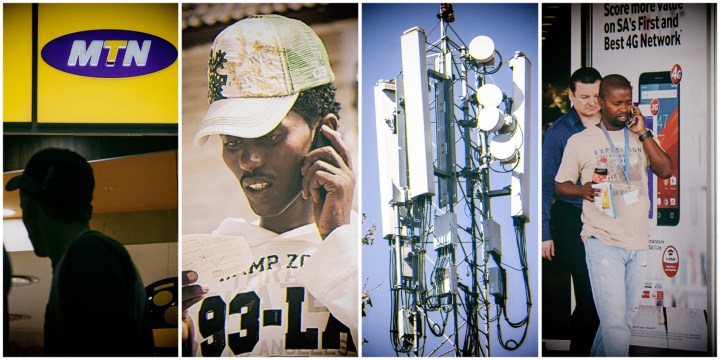HARD LINES
Eskom blackouts, inflation and cost-of-living crisis stalk SA’s major telecommunication companies

Telkom continues to be hit hard by South Africa-specific problems. Meanwhile, Nigeria’s economic challenges remain a headache for MTN.
MTN and Telkom are two telecommunications companies facing differing woes, with the latter reeling more from South Africa-specific problems, and the former’s rapid expansion into the rest of Africa coming back to bite it.
The growth of Telkom’s earnings is being undermined by Eskom blackouts and having to spend millions of rands on backup electricity measures, such as generators and battery storage facilities, to power its cellphone towers and keep its network going during power outages.
The rising cost of living has meant that many consumers are cutting back on telecommunications products and services offered by Telkom, which also negatively affects its profits.
Although Telkom’s revenue increased by nearly 4% during the quarter ending June 2023 to reach R10.5-billion, thanks to more of its mobile subscribers purchasing and using data, it is still in a loss-making position. Telkom’s core profit (from main operations including fixed line, fibre and mobile services) fell by 4.2% to R2.2-billion.
A bright spot for Telkom is that its mobile business is growing, especially the number of consumers who are choosing its network over others. The number of its subscribers grew by almost 7% to reach 18.5 million, which helped it to grow the revenue it makes from charging them for telecommunications services by 5.6% to reach R4.56-billion.
Despite this, core profits in Telkom’s mobile business fell by 5.6% (about R1.14-billion), with bad debts rising as consumers continue to take the strain, as well as an increase in Eskom blackouts costs (backup electricity measures) of R54-million.
Telkom group CEO Serame Taukobong recently told Daily Maverick that growing the mobile business will be the company’s core focus.
Read more in Daily Maverick: ‘Telkom is not for sale,’ says CEO Serame Taukobong while potential buyers circle ailing operator
Taukobong believes that the mobile business will be a vector of growth for South Africa’s third-largest telecommunications company, as it plans to offer consumers high-speed data services such as 4G and 5G. South Africa still largely depends on the much slower 3G.
Even though Telkom plans to expand its mobile services offering, its competitors, MTN and Vodacom, are miles ahead of it in this arena.
Telkom’s fibre to the home and business, and ICT service businesses continued to grow revenue — and all are seen by Taukobong as an opportunity for growth.
MTN’s financial situation
Meanwhile, MTN is facing fewer woes in its South African home market, but more so in the rest of Africa, where the telecommunications giant is choosing to deploy more capital to expand. MTN is facing problems mainly in Nigeria, a country beset by out-of-control inflation, which negatively affects the ability of consumers to afford telecommunications services, and causes currency devaluations, which creates financial losses for the company.
MTN had seen significant currency volatility during the six months ending June 2023, including rand depreciation against the dollar and the naira (Nigeria’s currency) significantly losing its value after currency rates were liberalised in Nigeria. On the latter, the Central Bank of Nigeria allowed the naira to float freely so that its value could be determined by supply and demand instead of the central bank’s interventions. This led to its value plunging by more than 30% on 14 July against the US dollar.
Despite these problems, MTN does not expect its profits to fall.
MTN said in a trading statement for the six months ending in June that it sees its headline earnings per share — a common profit measure in South Africa that excludes once-off items such as acquisitions that might artificially boost profits — to remain flat or rise by 10% to 506 cents-557 cents.
Nigeria is MTN’s most profitable market, accounting for almost 46% of the group’s core profit in 2022. MTN has 77.1 million mobile customers in Nigeria, which is substantially higher than Telkom’s entire subscriber base of 18.5 million.
But Nigeria remains a tough market for MTN, especially with the cost-of-living crisis that is affecting consumer affordability. Energy, food and general inflation remain at elevated levels. Inflation in Nigeria accelerated for the sixth consecutive month in June, reaching 22.8% (by comparison, the inflation rate in South Africa reached 5.4% in June).
Investors are worried about the situation at MTN as its shares on the JSE finished 0.2% lower on Monday, wiping off R3-billion from their total value (R261.3-billion).
Meanwhile, Telkom’s shares, which have been on a perennial decline this year, had a good day, appreciating by 1.9%, adding R362.9-million to their value on the JSE (R15.1-billion). DM

















 Become an Insider
Become an Insider
Comments - Please login in order to comment.